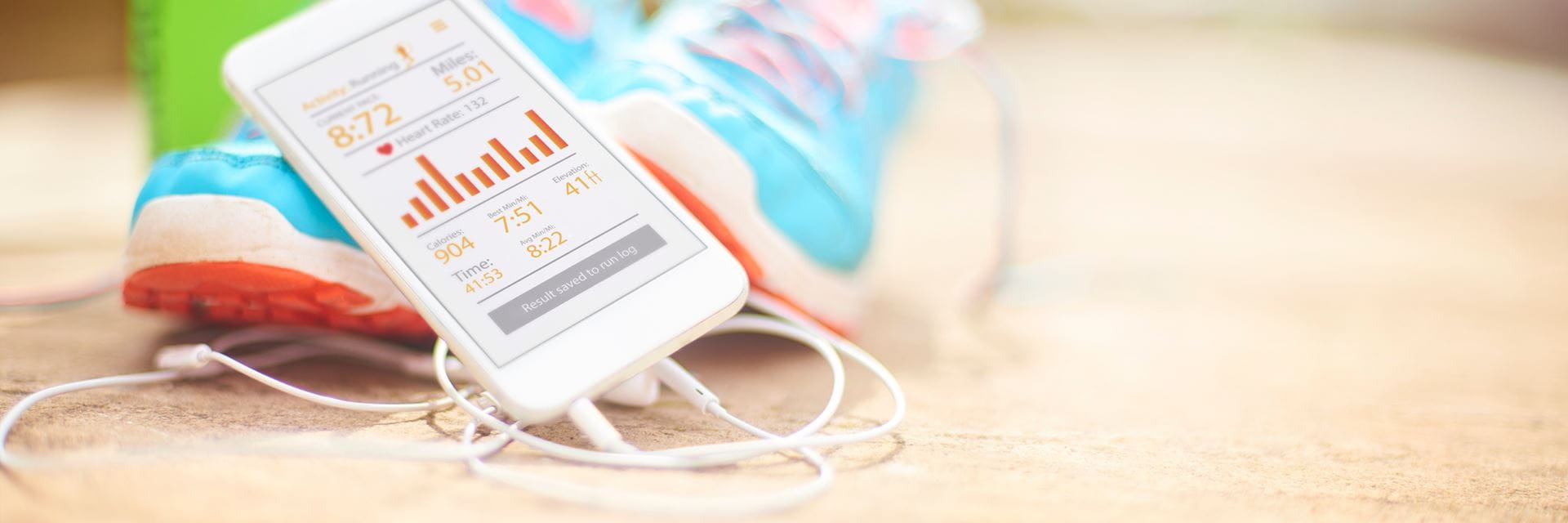Most of us wouldn’t say no to a handy tool that could help us get fit, feel calmer, eat healthier or feel better about ourselves in general. In the age of mobile technology, there are now many fitness and health apps that claim to do just that. So – in a world with thousands of apps at our fingertips, what’s really useful? We’ve picked 10 of the best health apps to get you started.
- Headspace : One of the most popular free health apps, Headspace is great for anyone wanting to try meditation for the first time. The app’s starter programme provides 10 minute guided meditations that help you to de-stress, relax, and unwind at the end of the day.
- Nature Sounds Relax and Sleep : Having trouble sleeping? Need a way to block out stressful noise? The free Nature Sounds Relax and Sleep app has a range of sound effects and restful background tracks such as cityscapes, waves, and birdsong. It also features a start/stop timer, which can be used as an alarm.
- SugarSmart : Trying to resist your sweet tooth and eat less sugar? Even if you don’t have a chocolate habit, there’s often a surprising amount of sugar in foods we don’t even consider to be “sweets”. SugarSmart is a handy app created by the NHS to explain the sugar content in the foods we buy: simply scan the barcode, and the app will translate that into the number of sugar cubes in one portion. You might be surprised!
- Breathe2Relax : Created by the National Centre for Telehealth and Technology, this is a great app to help you do deep ‘diaphragmatic breathing’, which research suggests has similar benefits to regular meditation.
- MyFitnessPal : One of the most widely used fitness and health apps, this helps you keep track of everything you eat, making it useful for managing a healthy BMI . The app includes a calorie counter with an impressive 3 million ingredient strong directory. Use its inbuilt barcode scanner to automatically find your item.
- Pocket Yoga : Want to start yoga, either to relax or to improve your flexibility? Try Pocket Yoga. It has 27 different routines, with both audio and visuals to match.
- The Good Fish Guide : If you’re trying to cut down on the saturated fat in your diet, replacing red meat with a fish dish or two every week can help with that. Created by the Marine Conservation Society, The Good Fish Guide helps you make sure you’re eating sustainably sourced fish – explaining whether the type of fish you’re eyeing up in the supermarket is plentiful or drastically overfished.
- Water Drink Reminder: One important and often neglected part of being healthy is drinking – at least 2 litres of water a day (about 8 cups) is the aim*, but so few of us make it that far. This handy app helps you out by recording your daily fluid intake and posting helpful reminders.
- FoodKeeper : Do eggs go in the fridge? How do you store cooked rice? How long does meat last in the freezer? Created by the United States Department of Agriculture (USDA), the FoodKeeper app is designed to answer questions like these. Knowing how long the food you buy can last doesn’t just mean you’re less likely to eat something that has seen better days – it’s great if you’re eating healthy on a budget, too.
- Couch to 5k : If you want to start running, this is one of the best free health apps. Designed by fitness folks at the NHS, this is an app designed for those with no running experience. Download as an app or podcast series to your phone or music player and listen as you jog.
Those are just some of the best fitness and health apps available – there’s a whole world out there to explore. And if you like getting regular updates on the latest in heart health, diet, and fitness, why not sign up to our e-newsletter? You’ll get tips, recipes, and handy guides delivered right to your inbox every month.
*A daily intake of 2 litres of water a day contributes to the maintenance of normal physical and cognitive functions.
